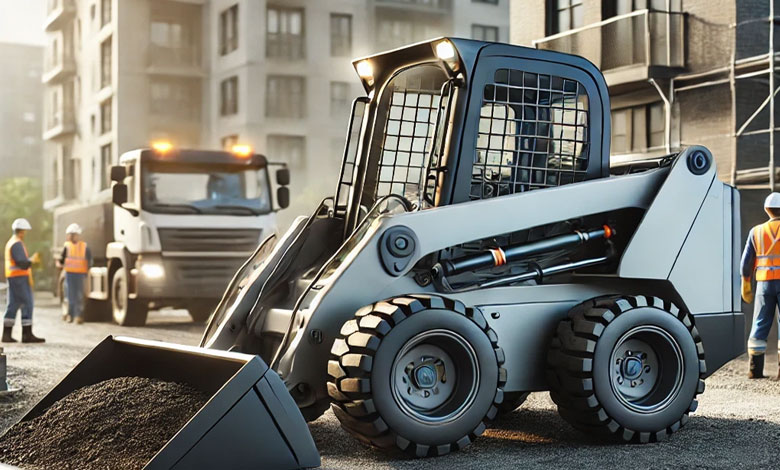Struggling with tight spaces and strict environmental standards on your small construction site? Diesel loaders often exacerbate these issues with emissions and noise. Electric wheel loaders offer the perfect solution.
Electric wheel loaders excel in small construction projects due to their compact design, zero emissions, and quiet operation. Ideal for urban or residential projects, they significantly improve work efficiency.
Let’s explore how electric loaders specifically address the key challenges of small construction projects.
## How Do Electric Loaders Fit into Tight Spaces?
## How Do Electric Loaders Reduce Noise at Construction Sites?
## How Can Electric Loaders Help Meet Environmental Regulations?
## How Do Electric Loaders Enhance Project Operational Efficiency?
## How Can Electric Loaders Improve Your Company’s Image?
How Do Electric Loaders Fit into Tight Spaces?
Space constraints often hinder efficiency in small-scale construction projects.
Electric loaders, such as the Blanc-ELE E10, feature compact dimensions (3010x1080x2070mm) and a minimal turning radius (1780mm), easily navigating tight spaces.
For instance, Blanc-ELE’s E10 electric wheel loader is specifically designed for small construction sites, allowing workers to effortlessly maneuver through narrow paths or between closely spaced structures, ensuring smooth and uninterrupted operations.
How Do Electric Loaders Reduce Noise at Construction Sites?
Construction noise is increasingly becoming a critical concern for contractors, particularly in residential or sensitive areas.
Electric loaders operate significantly quieter than diesel models, making them ideal for small construction projects in noise-sensitive zones.
Clients like Sarah Thompson from the U.S. reported that using Blanc-ELE’s E15 loader drastically reduced noise complaints in residential areas, creating a more agreeable working environment and improving community relations.
How Can Electric Loaders Help Meet Environmental Regulations?
Meeting stringent environmental standards can be challenging when using traditional diesel machinery.
Electric wheel loaders offer zero-emission operations, ensuring compliance with environmental regulations and avoiding penalties common to diesel equipment.
For example, Blanc-ELE’s electric loaders (E10, E15) reduce carbon emissions by approximately 2 tons per year per machine, fully complying with global environmental standards such as ISO 9001 and CE, thus effectively mitigating regulatory risks.
How Do Electric Loaders Enhance Project Operational Efficiency?
Diesel loaders incur high operational and maintenance costs, negatively impacting small project budgets.
Electric loaders significantly lower operational expenses through reduced fuel costs, simplified maintenance, and increased uptime due to fewer mechanical parts.
Using Blanc-ELE’s electric models, like E10 and E15, companies report approximately 20% lower operating costs. The absence of engine oil changes and simpler electrical systems means maintenance routines are less frequent and less costly.
How Can Electric Loaders Improve Your Company’s Image?
Clients and regulatory bodies increasingly value companies committed to sustainability.
Adopting electric loaders demonstrates your company’s commitment to environmental responsibility, positively impacting your brand reputation and market competitiveness.
Construction firms using Blanc-ELE’s electric loaders have highlighted improved brand perception among clients. Australian client John Williams mentioned how switching to electric loaders enhanced his company’s eco-friendly image, facilitating new business opportunities.
Summary:
Electric wheel loaders effectively address space constraints, noise pollution, environmental compliance, and operating costs in small construction projects, greatly benefiting your company’s image and competitiveness.

